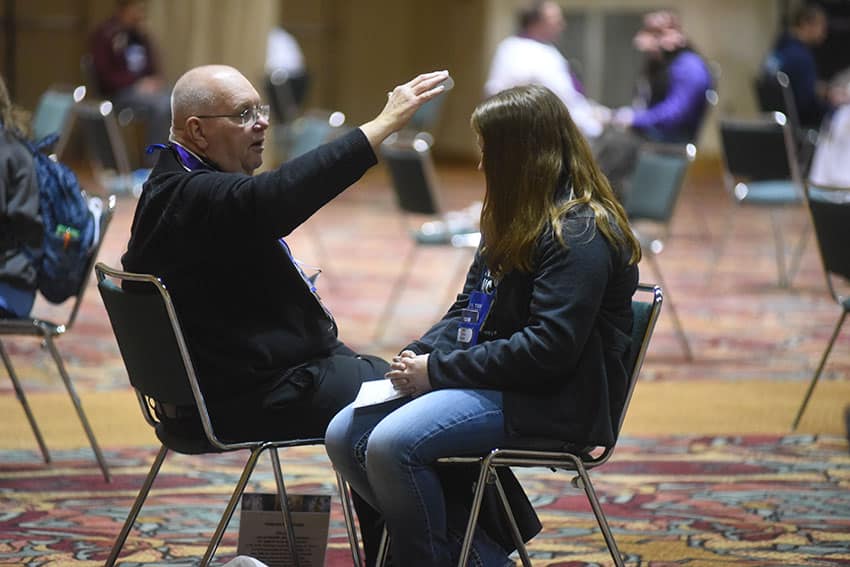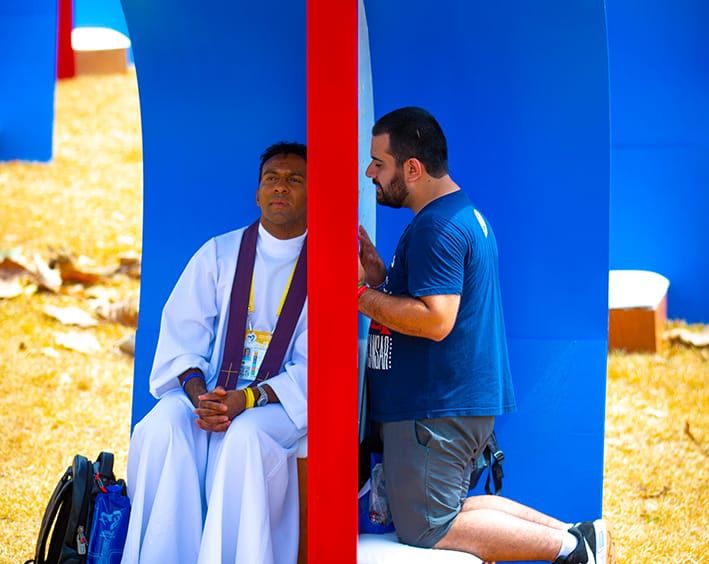
The last issue of The Catholic Weekly reported that Archbishop Julian Porteous has published his feedback on the Plenary Council’s “Towards the Second Assembly” document.
I read it with great interest.
I was impressed by the Archbishop’s ability to clearly and concisely articulate some of the “big picture” issues we should keep in mind while considering the concrete proposals put before Council members.
I am grateful for the Archbishop’s willingness to publicly share the fruits of his discernment because I know it will greatly assist my own, and I’m sure that of others as well.
Taking Archbishop Porteous’ lead, I thought I might also, from time to time, share some of my own thoughts about some of the proposals put forward to the Council.
This week, given it is Divine Mercy Sunday, I felt inspired to write about the Sacrament of Reconciliation and the proposal that the Plenary Council should request the Third Rite of Reconciliation with general absolution should be used regularly, rather than in the emergency situations for which it is currently reserved.
“Our parish priest moved along the line and as he stood before each of us, we were invited to pray “Jesus, have mercy on me, a sinner” while he prayed the prayer of absolution over us.”
There are a number of justifications for this proposal, but oft-cited is that the reduction in the number of people attending individual confessions shows the practice is antiquated.
I want to speak about this from my own experience as a child of the 1980s.
My first confession was a strange combination of the Second and Third Rite of Reconciliation. My classmates and I lined up before the sanctuary in our local parish and were given an image of Jesus to hold in our hands.
Our parish priest moved along the line and as he stood before each of us, we were invited to pray “Jesus, have mercy on me, a sinner” while he prayed the prayer of absolution over us. So, while we did receive individual absolution, there was no individual confession of sins.
I think we attended individual confession during school hours a few weeks’ later, but that was it. Every confession from then was made under the Third Rite.
Then came November 1998, when Pope John Paul II reminded the Australian Bishops that the use of the Third Rite as a normative, parish practice was “illegitimate” and had to be eliminated.

I was 16 years old at the time and while I don’t remember much of the controversy the statement caused, I do recall being at Mass the following Sunday and hearing the priest preach against the Pope’s decree.
The result was that I just stopped going to confession at all. Having had no real experience of individual confession and without any indication of its importance from the pulpit, the logical solution was to not bother at all.
It wasn’t until the lead up to World Youth Day in Sydney, a full decade later and at 26 years of age, that I finally made my first, real confession. It took me another 11 months to work up the courage to get to my “second” confession, before being in a position where I could make it a regular part of my spiritual life.
Well-meaning as they were, those who insisted the Third Rite was “more appealing”, particularly to young people, robbed me of the intimate experience of God’s mercy that only the First Rite can give.
Some will argue that the “choice” of individual confession was always available. But how can a young person with no experience of confession, let alone formation in the habit of regularly attending the confessional, be expected to exercise that choice meaningfully when they can still “tick the box” by participating in the Third Rite?
I went through my teens and most of my 20s without a proper encounter with the tender love and mercy of Jesus in confession. I believe that individual confession, particularly in the ever-expanding transitional period from childhood to adulthood, is critically important.
“Today’s youth live in an individualistic society that places autonomy as its highest virtue and denies the existence of sin … confession is the only remedy for cancel culture.”
Without it, you risk “forming” adults with no sense of sin or individual responsibility, and no sense of the boundless mercy of God in the face of that sin.
Indeed, I would argue that individual confession is even more important for the youth of today than it was in my time.
Today’s youth live in an individualistic society that places autonomy as its highest virtue and denies the existence of sin, while simultaneously “cancelling” anyone who transgresses the diktats of modern culture. As I wrote recently, confession is the only remedy for cancel culture.
Well-meaning as it might be, the re-introduction of the Third Rite into mainstream Catholicism in Australia would rob future generations of one of God’s greatest gifts and one of the Church’s greatest treasures.
I believe the youth of today and tomorrow deserve better than having the Third Rite effectively imposed on them by those who believe they know better. I pray that the members of the Plenary Council believe this too.
